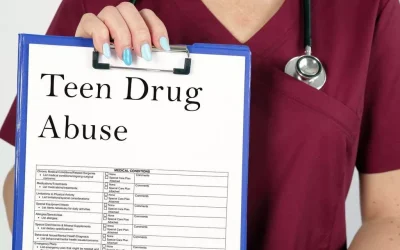“Glycerin comes in different grades of purity and can be manufactured from different sources,” says Chiara Butler, a reviews analyst in the Good Housekeeping Institute Beauty, Health and Sustainability Lab. “The glycerin used in skincare is typically USP grade, which means that it meets a high standard of purity set by the United States Pharmacopeia and it is fit for pharmaceutical use.” You are encouraged to report negative side effects of prescription drugs to the FDA. Tell your healthcare provider about all the medicines that you take, including prescription and over-the-counter medicines, vitamins, and herbal supplements.
Skin Cancer and Alcohol
Similarly, a deficiency of vitamin K, which is needed for blood clotting, can also cause bruising. The typical image that many of us have of someone who drinks heavily is that they have a red face. When you drink alcohol your blood vessels dilate, increasing blood flow near the skin’s surface, giving your face a red color or an alcoholic rash. Some people are more Here Is How Alcohol Affects Your Skin prone to facial flushing though because of a genetic mutation. These individuals can’t process alcohol effectively, which not only leads to alcohol skin rashes, but can also make them feel dizzy and cause palpitations, nausea, and vomiting from only small amounts of alcohol. This gene mutation is more common among people of Chinese, Japanese and Korean descent.

What does alcohol do to your body?
Dermatology Partners in Lakewood and Denver, Colorado, “I see many patients who have noticed dark circles, redness, inflammation, and accelerated skin aging. I always ask about alcohol consumption, and I hope my patients are straightforward with me about how much they drink. Approximately 15.7% (79/503) of the CYMBALTA-treated patients in 13-week, placebo-controlled adult trials for chronic pain due to OA discontinued treatment due to an adverse reaction, compared with 7.3% (37/508) for placebo-treated patients. Adverse reactions reported as a reason for discontinuation and considered to be drug-related (as defined above) included nausea (CYMBALTA 2.2%, placebo 1%). Approximately 12.9% (117/906) of the CYMBALTA-treated patients in placebo-controlled adult trials for DPNP discontinued treatment due to an adverse reaction, compared with 5.1% (23/448) for placebo-treated patients.
Sexual and reproductive health
Not only can alcohol wreak havoc on the skin itself, but it can also create complications when it comes to skincare treatments and procedures. But its breakdown product, acetaldehyde, is a very potent vasodilator in the skin,” Soleymani said. As vasodilators, alcohol and acetaldehyde dilate our blood vessels, causing our faces to flush and turn red. But if you’re a skincare fiend, particularly one who splurges on the latest and greatest lotions, potions and procedures, Dry January may just be what the dermatologist ordered to get your skincare (and budget) goals back on track. “Sugar, and simple carbohydrates that are easily digested into sugar, can damage collagen in the skin in a process called glycation5, in which excess glucose in the skin adheres to collagen and elastin proteins,” Marcus says. “Alcohol triggers inflammation1, which may result in dilation of blood vessels in the face and subsequent flushing, which may become permanent if it happens repeatedly over long periods of time,” Marcus notes.

- Chowing down on veggies packs a vitamin punch, but because your skin is the last organ to get the nutrients it needs from the bloodstream, applying vitamins topically is also a good option.
- In addition to all its other health advantages, quitting alcohol has numerous benefits for the skin.
- While it can be a source of contact dermatitis, when specifically formulated, it can actually be gentle, even for wounded skin, according to one study.
- Don’t fret too much, however—after this, your skin will usually start to regain its healthy glow.
Over time, rosacea can cause visible blood vessels, so it’s no surprise that alcohol can exacerbate the problem. However, if left untreated, excess tissue can grow in the form of bumps across affected areas. Sufferers usually find that red wine is most likely to trigger flare ups and a single drink is often enough to bring on symptoms.
Do You Need Supplements for Better Skin? Here’s What the Science Says – Healthline
Do You Need Supplements for Better Skin? Here’s What the Science Says.
Posted: Wed, 17 Aug 2022 07:00:00 GMT [source]
- Rodriguez notes that “drinking” is classified as a minimum of two alcoholic beverages per day—enough to do a huge amount of damage to your skin, as it affects any and all mucous membrane, from your pancreas to your liver to your face.
- Whether any of the symptoms described above represent such a conversion is unknown.
- A reasonable place for alcohol to appear is lower on the ingredients list.
- Discover how your diet can enhance skin health with key nutrients like antioxidants, omega-3s, and vitamins.
- Well-hydrated skin means a reduction in the appearance of fine lines and wrinkles.
- Loud snoring can indicate a potentially serious problem, but not everyone who has sleep apnea snores.
- Weight and height should be monitored regularly in pediatric patients treated with CYMBALTA [see Use In Specific Populations].
- But the good news is that when you forgo the booze (and prioritize drinking water), the dehydrating effects of alcohol are fairly easy to fix.
- This may come as a surprise to you, as drinking moderately, particularly when it’s red wine, is often said to protect your heart due to its antioxidant content.
- I always ask about alcohol consumption, and I hope my patients are straightforward with me about how much they drink.
